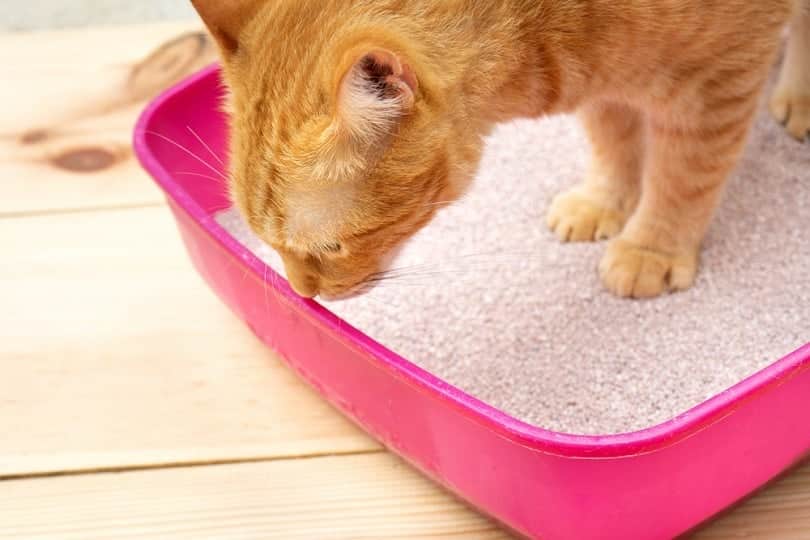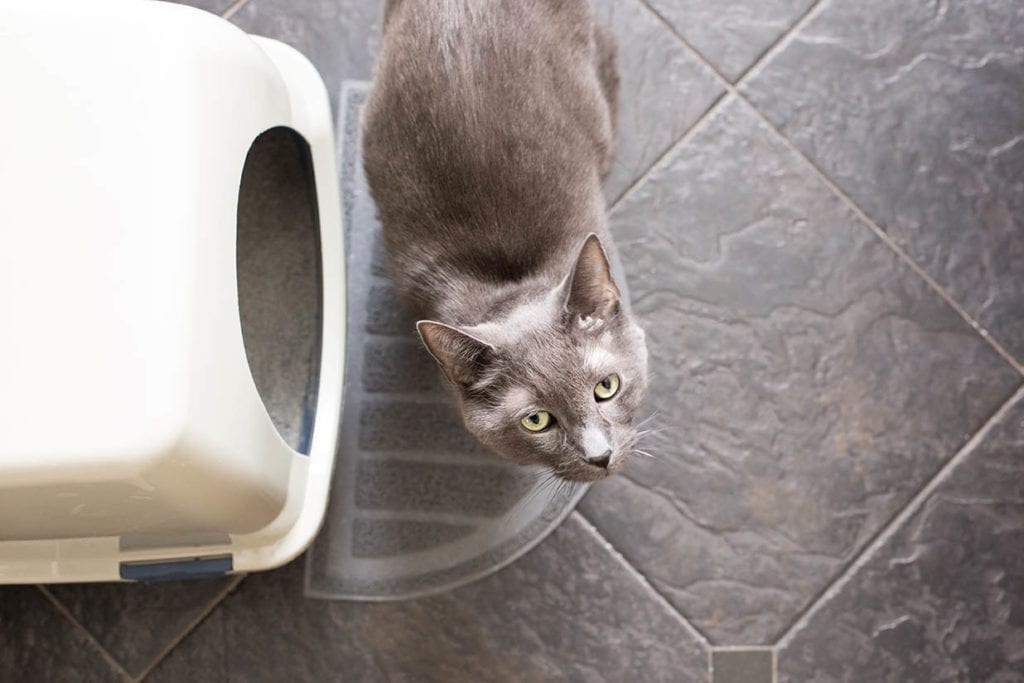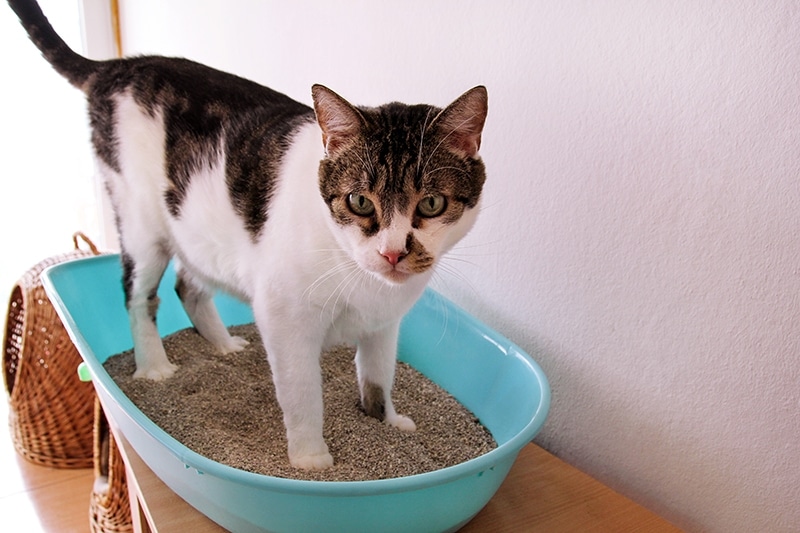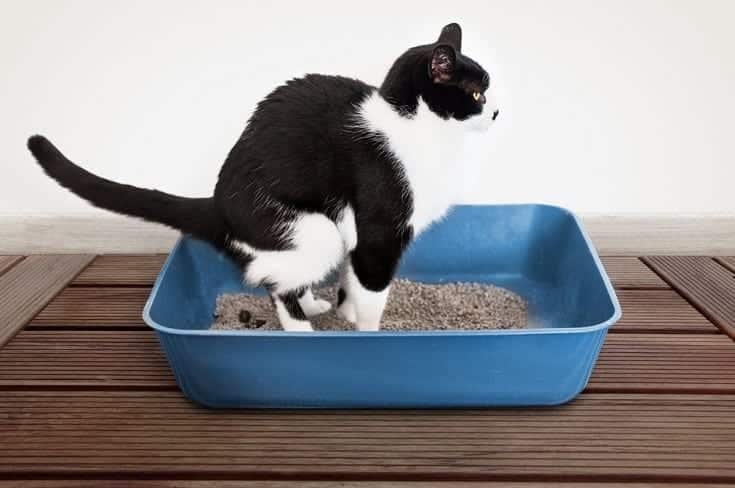If you have always thought that it was natural for your cats to cover up their poop, think again. When we compare this behavior to those of wild cats, we see a wide gap. In domesticated cats, these tendencies are called “litter box behaviors.”
Since covering poop isn’t a trait of wild cats, why do our housecats do it? Animal behaviorists are not entirely sure, but two theorized reasons have come from studies and research: they are respecting dominant individuals or it is a bred behavior. Whatever the reason, when your cat’s daily behaviors begin to change, it should always be a cause for attention. They could be trying to communicate any number of things by leaving their poop uncovered.
Below, we have six reasons that your cats might be leaving their poop for all to see. We also discuss how you can try to fix this behavior for a cleaner-smelling household.
The 6 Reasons That Your Cat Doesn’t Cover Their Poop
1. They don’t like their litter.
When your cat first starts to exhibit this behavior, it is worth thinking about anything that might have changed recently. Have you been using one kind of litter for many years or months and decided to try a new one out? Whether it was due to a change in your pet store’s stock or needing a more budget-friendly option, it is likely the reason that your cat is throwing a smelly tantrum.
Certain types of litter have an unpleasant feel on the feet of some cats, or they might not like the smell. Perhaps you simply have allowed the litter box to get too dirty. Whatever the case, they don’t want to spend a minute more than necessary inside their box. At this point, you should be happy that they haven’t chosen another part of the house to use as their bathroom.
- The easiest way to solve this is to change back to the litter that you were using previously. If you can no longer get it at your pet store, it might be worth trying to order it online. If the litter box is too dirty, set up a more frequent cleaning schedule.

2. Your cat might be suffering from a medical issue.
Whenever you notice a significant change in your cat’s behavioral patterns, you should take them to the vet. Cats are creatures of habit and routine. They do not prefer to break long-held habits unless they start to experience illness or painful medical problems. They might have an injury on their paws that makes standing in the litter painful.
Cats can also suffer from urinary tract infections that can make being in their litter box almost unbearable. It can change their behaviors and the way they typically act both inside and outside their litter box.
- If you think that your cat’s behavior has suddenly changed for no apparent reason, it is worth taking them to the veterinarian. Some cats are not willing to show signs of pain until it crosses a dangerous and perhaps fatal threshold. A behavioral change is often an early warning sign.
3. The cat doesn’t like the placement of the litter box.
Problems with the litter box will be among the most typical reasons that your cat starts refusing to cover their feces. Correctly placing a litter box is already an art. Cats tend to have strict requirements for where they are willing to do their business. If their litter box is in a place where they do not feel comfortable being vulnerable, bad behaviors can arise.
These include refusing to use the litterbox or not covering their poop after using it because they want to get out of there.
- You need to place their litter box in a quiet area of the home. The cat should feel safe there and relatively secluded. It is best to stick it in a corner instead of the middle of a room or high-traffic area so that they only have one or two entry points to watch.
- If you have recently moved your cat’s litter box, they might be telling you that they are not comfortable with the new placement. It might not be an option to move it back, however. If there is no other place to move the box, try giving them time to become accustomed to the spot.

4. They want to declare their territory.
Even if they have lived in the home for a while, some cats won’t feel like it is part of their territory. This behavior could happen if they have recently become part of the family or joined a home with an older, more dominant cat, and they don’t want to bend to their dominance.
It could also happen if you have recently adopted another cat. Your first cat might want to declare to their new feline friend that they are the master of the house.
- Having multiple cats in the home can cause an imbalance in who is dominant over whom. It is best to have the same number of litter boxes as cats in the home, plus one extra. This will help them thoroughly separate their territories within the home.
- Place the litter boxes in separate parts of the home so your cats can have specific areas to call their pooping territory.
5. Your cat’s litter box is too small.
Another common problem is if the litter box is too small for your cat. Cats need to have enough room to comfortably turn around, not just for your cat to fit inside. Cats need enough space to wiggle around and dig a spot in the litter to find areas that have not yet been soiled, which is why their box shouldn’t be left too dirty.
- The easiest way to rectify this particular problem is to buy your cat a larger litter box. If you have a big cat or a kitten that is growing quickly, bigger is always better.

6. It is natural for them NOT to cover their poop.
Wild cats do not naturally cover their poop, so some domesticated cats will have simply not inherited or developed this instinct to cover. If your cat has never been one to bury its poop, none of the previous reasons will be applicable.
Cats that fail to cover probably never learned the behavior from their mother when they were kittens. Some breeds crossed with a wild cat will not have the strong bred-in instinct to cover either.
- You have to teach your cat how to bury their poop. Although it is not a pleasant process, you have to consider it against many years of seeing smelly, fresh poops in their box.
- Start by being around whenever your cat goes to the bathroom or as often as you can. After they are done doing their business, take their front paws and make a digging motion with them.
- Just like training a dog, every time your cat gets part of the routine right, reward them with a treat. It might take a while, but for many, it is worth persisting.
See Also:
- 10 Best Cat Litters for Multiple Cats – Reviews & Top Picks
- How to Tell If a Cat Has UTI (Urinary Tract Infection)? Vet-Reviewed Signs
Featured Image Credit: Stefano Garau, Shutterstock










